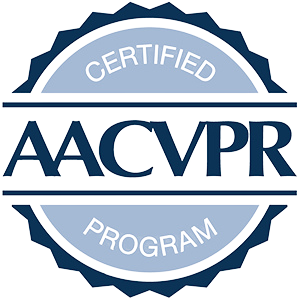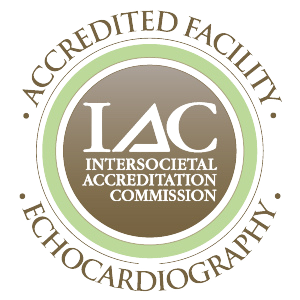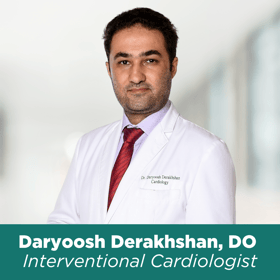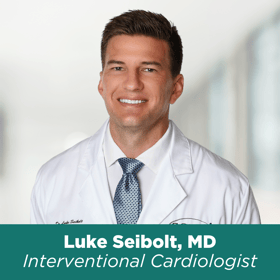The Region’s Destination for Advanced Heart & Vascular Care
SGMC Health is South Georgia’s only Level I Emergency Cardiac Care Center, bringing cardiology, vascular surgery, electrophysiology, and heart surgery together — all under one coordinated team!
Recent Heart News
SGMC Health Introduces PET Cardiac Stress Testing for More Accurate Heart Diagnostics
SGMC Health is expanding its advanced cardiac imaging capabilities with the introduction of Positron Emission Tomography (PET) cardiac stress testing, offering patients faster, more accurate assessments of heart function close to home. […]
SGMC Health Introduces Cutting-Edge Cardiac Procedure to Reduce Stroke Risk
SGMC Health recently completed its first patent foramen ovale (PFO) closure procedure, performed by Interventional Cardiologist Daryoosh Derakhshan, DO. This milestone marks a significant advancement in local cardiovascular care, offering patients access to […]
SGMC Health Offers Innovative Treatment for Resistant High Blood Pressure
SGMC Health is offering a new treatment for patients with high blood pressure that is difficult to control called renal denervation (RDN). Recently approved by the U.S. Food and Drug Administration […]
SGMC Health Recognized for Vascular Surgery Quality Initiative
SGMC Health has been named a Carotid Care Quality Champion by the Society for Vascular Surgery’s Vascular Quality Initiative (SVS VQI). This national recognition celebrates healthcare organizations that go above and beyond to improve […]
According to the American Heart Association, here are things you can do to lower your risk of heart disease.
- Treat high blood pressure.
- Don’t smoke, and avoid secondhand smoke.
- Eat a heart-healthy diet that’s low in saturated and trans fats, sodium (salt), and added sugars.
- Get at least 150 minutes of moderate-intensity physical activity a week – an average of just 21 minutes a day.
- Reach and maintain a healthy weight.
- Control your blood sugar if you have diabetes.
- See your doctor for regular check-ups.
- Take your medicines exactly as prescribed.
The best way to prevent potential heart issues is to learn the risk factors and know where you stand.
Care That Works Together
Because Your Heart Deserves a Team
At many health care systems & hospitals, heart & vascular specialists work in silos. At SGMC Health, collaboration is our culture. Cardiologists, vascular surgeons, cardiac electrophysiologists, and cardiothoracic surgeons plan care together — sharing expertise, reviewing imaging, and making decisions as one team.
What That Means for You:
- Faster access to care
- Fewer delays between diagnosis and treatment
- A seamless experience from start to finish
General Cardiology
Interventional Cardiology
Cardiac Electrophysiology
Cardiothoracic Surgery
Vascular Surgery
Become A Patient
Hear More From Our Physicians
Trusted by Patients.
With an average Google rating of 4.8 stars from 900+ reviews, patients are raving about the cardiovascular care they receive at SGMC Health. ⭐⭐⭐⭐⭐
.png?width=600&name=Untitled%20design%20(4).png)
My experience was amazing. Dr. Ramirez was well prepared. She knew my history from A to Z on my first visit, which blew my mind. I would highly recommend this physician to everyone. First impressions are lasting ones, and this is forever etched in my spirit.
I recently had a cardiac surgery at SGMC Health that is a fairly new procedure, and I had full confidence in my cardiologist, Dr. Luke Seibolt, and his team. As expected, everything went well, and I’m doing great!
From the emergency surgery in the ER until my final follow-up, which completely released me from his care, Dr. Johnson and his staff have been magnificent. They took what was an unpleasant and complicated situation and made it pleasant and bearable.
Dr. Ruiz was very professional, yet friendly and personable. He gave me sound advice that I followed, and my condition improved greatly.
This was one of the best doctor experiences I have ever had. Dr. Sohinki was amazing. He took time with me. He got to know me. He was kind, and I felt like he cared about my health situation. He was an expert, and it showed. I have full confidence I am in good hands.
Extraordinary Care.
Patient Stories
Real stories from our doctors and patients of how our team cares for you and your heart.

Cheryl Cotton
For years, 71-year-old Cheryl Cotton lived with atrial fibrillation (AFib), an irregular heartbeat that often left her feeling exhausted, lightheaded, and uncertain about when symptoms might strike.
Diagnosed several years ago, she managed her condition with blood thinners and learned to pause her life when her heart began to race.
“Once an AFib episode was over, I felt like I’d run a marathon without doing anything,” Cheryl shared.
After moving to southwest Georgia, Cheryl knew she needed a new plan and a new specialist. That search led her to Kamil Hanna, MD, Cardiac Electrophysiologist at SGMC Health, who came highly recommended by physicians and friends alike.
Though it meant driving an hour and a half from Albany to Valdosta, Cheryl says it was well worth the trip.
From her very first appointment, Cheryl felt confident in her care.
“Dr. Hanna was incredibly professional and encouraging,” she said. “Most importantly, I felt seen and I felt heard. He listened to what I had to say, looked at my test results, and created a plan that made sense for me.”
In June 2025, Cheryl underwent a groundbreaking concomitant dual procedure at SGMC Health: an AFib ablation combined with implantation of a WATCHMAN™ device, all in a single sitting.
During the procedure, Dr. Hanna corrected the heart's electrical signals causing the AFib and placed a small device to eliminate the need for long-term blood thinners. This innovative approach streamlines care, reduces the need for multiple procedures, and supports a smoother recovery.
SGMC Health is one of only a small number of health systems in Georgia offering this advanced dual procedure.
The results were lifechanging.
“Since the procedure, I haven’t had a single AFib incident,” Cheryl said. “It completely solved the problem.”
After follow-up imaging confirmed the device was perfectly in place, Cheryl looks forward to her final appointment, where she anticipates coming off blood thinners entirely. “That’s incredibly exciting,” she shared.
Cheryl also speaks highly of her experience at SGMC Health, where she stayed overnight following the procedure.
“I’ve had hospital stays before, but I was incredibly impressed with the staff, the care, and the facility,” she said. “If I ever needed to be hospitalized again, I would absolutely choose SGMC Health.”
Today, Cheryl is back to living her life, without fear of sudden symptoms or the need to slow down.
For others who may be experiencing heart rhythm issues, her advice is simple:
“Make an appointment with Dr. Hanna. He can diagnose the issue, give you a treatment plan, and most importantly, he listens. He took corrective action, and it worked.”
For Cheryl, finding the right care didn’t just restore her heart’s rhythm. It gave her peace of mind and the freedom to enjoy life again.

Mary "Nell" Evans
At 88 years old, Mary "Nell" Evans has always valued her independence.
A Valdosta resident, Nell enjoys keeping a tidy home, cooking her own meals, and traveling across Georgia with her daughter. But just after Thanksgiving, everything changed.
For months, Nell had been dealing with severe pain in her right foot. It became swollen, discolored, and eventually turned a deep purple. Walking became nearly impossible, and Thanksgiving was especially difficult.
The day after the holiday, with the pain no longer bearable, Nell’s family brought her to the Emergency Room at SGMC Health.
From the moment she arrived, her family knew something was different.
“They took her seriously right away,” her daughter, Debbie, recalled. “Something was clearly wrong, and the team acted fast.”
In the Emergency Room, providers were unable to detect a pulse in Nell’s foot and immediately contacted David Hardy, MD, a vascular surgeon with SGMC Health. Dr. Hardy arrived promptly and confirmed that Mary had a dangerous blockage in her leg that threatened both her mobility and her limb.
“He told us, ‘We’re going to know everything about you before we do anything,’” her son Jerry said. “That gave us a lot of confidence. This was life or death, and he wanted to do it the right way.”
Nell was admitted that day and remained in the hospital for nine days. Dr. Hardy started her on blood thinners and performed a procedure to restore blood flow to her leg. Slowly, color began returning to her foot, and the intense pain she had lived with for months began to ease.
But as her care team was evaluating her condition, they uncovered another serious issue—one Mary never felt coming.
During testing, physicians discovered that Nell had a severe heart valve problem, despite having no noticeable heart-related symptoms. The condition required prompt attention. Luke Seibolt, MD, interventional cardiologist, recommended a transcatheter aortic valve replacement (TAVR), a minimally invasive procedure used to replace a failing heart valve.
What followed was a remarkable example of teamwork.
Dr. Seibolt worked closely with Dr. Hardy and cardiothoracic surgeon Guilherme de Oliveira, MD, to create a plan tailored specifically for her. The three physicians coordinated care so that both her heart and leg could be addressed during a single, carefully planned procedure.
“They explained everything,” Jerry said. “They talked through it multiple times. They communicated with each other constantly. I wouldn’t feel comfortable taking my mom anywhere else.”
In January, Nell underwent the TAVR procedure. Dr. Seibolt led the valve replacement, Dr. Oliveira assisted, and Dr. Hardy completed additional work to further clear blockages in her leg once her heart was stabilized. The entire procedure took about three hours.
The results were immediate.
“The color came back to her foot instantly,” Jerry recalled. “The pain was gone. It was incredible to watch.”
Nell stayed overnight and into the next day for recovery before returning home. While her energy levels were low at first, her pain was gone, her appetite returned, and she began gaining strength.
“At my age, I know it takes time,” Nell said. “I feel great otherwise. I just need my energy back.”
Her doctors reassured her that recovery would come, especially after an extended hospital stay. And it has—steadily and meaningfully.
Nell is once again getting out of the house, riding to the grocery store, grabbing coffee, and regaining the independence she treasures. She looks forward to returning to her routine—cleaning her home, cooking her meals, and traveling across Georgia with her daughter once again.
“I got the best service, the best nurses, and the best doctors,” Nell said. “I’m really pleased with everything they did.”
Her family agrees.
“From the physicians to every single person who cared for her—even the cleaning staff—it was exceptional,” Debbie shared. “Her quality of life has improved immensely.”
Today, Nell continues rebuilding her strength, surrounded by family and supported by a care team she trusts.
For patients and families facing heart or vascular concerns, Nell’s message is simple: compassionate, expert care—close to home—can make all the difference.
TAVR Procedure Transforming Lives
In this video, hear from two of our patients who detail the impact that this minimally invasive, lifesaving heart procedure has had on them.

Mark Hinkley
When 66-year-old Mark Hinkley of Mayday, Georgia, first noticed a heavy pressure settling across his chest as he sat in his recliner, he shrugged it off—until deep breaths became harder to take.
The feeling kept returning, and before long, Mark knew he needed to listen to what his body was trying to tell him. After visiting his primary care provider, he underwent testing followed by a heart catheterization with Interventional Cardiologist Daryoosh Derakhshan, DO, which revealed something far more serious than he expected: five major blockages.
Mark was soon referred to Guilherme de Oliveira, MD, Cardiothoracic Surgeon at SGMC Health. During their first meeting, Mark immediately noticed how straightforward and sincere Dr. Oliveira was.
“He talked to you—not down to you,” Mark recalled.
That honesty and down‑to‑earth approach made his decision simple.
When Dr. Oliveira explained that stents would only be a temporary fix and that open-heart surgery would provide a longer-lasting solution, Mark agreed. He trusted the surgeon who made him feel both informed and respected.
Dr. Oliveira performed an extensive open-heart surgery, removing an artery from Mark’s chest and veins from his legs to create the grafts needed to restore blood flow. Mark was placed on a heart-lung machine while the surgical team repaired his heart.
Mark’s heart surgery was successful, with no complications related to the procedure. As soon as he was medically cleared, the slow, determined journey back to movement began.
At first, Mark could barely make it past his doorway. By the second day, he says he felt like “a drunken sailor” navigating the hallway. But each day, he pushed a little farther—one lap, then the next. Before long, he was circling the hospital floors with confidence, meeting the walking requirements needed to finally head home. His discharge papers arrived almost as fast as he completed his final laps.
Today, Mark praises Dr. Oliveira without hesitation, describing his care as “second to none.”
In fact, he and his wife have already referred two friends to Dr. Oliveira for similar procedures.
“I told them, ‘Go see Dr. O.’ We even asked if we get the friends-and-family discount,” he joked.
When asked what he would tell others who think they may have a heart issue, Mark doesn’t miss a beat:
“Listen to your body—and if needed, go see Dr. Oliveira.”
Mark’s story is an important reminder that acting on early symptoms, seeking expert care, and trusting the right physician can change everything.

Rebecca Skelton
At just 25 years old, Rebecca never imagined she would experience a medical emergency that would change her life.
During what began as a routine annual checkup in September 2025, she suddenly developed severe blurred vision, chest palpitations, and complete numbness along the left side of her body while at the doctor's office. Recognizing the seriousness of her symptoms, her provider immediately advised her to go to the SGMC Health Main ER, where the emergency department team acted quickly to evaluate her condition.
Imaging tests confirmed that Rebecca had experienced a mini‑stroke.
Further testing, including an echocardiogram, revealed the underlying cause: a patent foramen ovale (PFO) — a small, flap‑like opening between the heart’s upper chambers that typically closes naturally during infancy. When it does not close, it can allow blood clots to pass through the heart and travel to the brain, increasing the risk of a stroke with no identifiable cause.
Nearly 25% of adults have a PFO, often without symptoms, making advanced detection and treatment essential for those at risk.
Rebecca was referred to Interventional Cardiologist Daryoosh Derakhshan, DO, who saw her the day after she was discharged from the hospital. He placed her on a 30‑day heart monitor, carefully reviewed her diagnostic results, and walked her through every step of her treatment options.
Rebecca shared that Dr. Derakhshan's attentiveness and clear communication brought her tremendous comfort during an overwhelming time.
Two weeks before her scheduled procedure, Rebecca underwent a transesophageal echocardiogram to accurately measure the size and severity of the PFO. In November, just before Thanksgiving, Dr. Derakhshan performed a minimally invasive PFO closure, accessing the heart through two small incisions in Rebecca’s groin.
The procedure lasted about two hours, and her recovery progressed smoothly. Within one month, she was able to resume most of her normal activities, aside from ongoing physical therapy for symptoms related to her mini‑stroke.
Rebecca now receives routine follow‑up heart echoes every three months and continues on temporary medication to reduce the risk of clotting during her healing period. She is extremely grateful for the attentive care she received that made sure she never felt alone in the process.
"Dr. Derakhshan has been an absolute blessing to me," shared Rebecca. "He made sure I knew every step of what was going to happen and how it was going to happen, but he also kept my family informed, too, and they really appreciated that."
Today, Rebecca encourages others to pay attention to their symptoms, no matter their age.
"I'm 25 years old, and I never suspected having a heart issue at my age," she said. "Had I not already been at the doctor that day, I don’t know what would have happened.”
Her story is a powerful reminder that heart conditions can affect anyone—and that swift action, expert care, and advanced cardiac capabilities can truly save lives.
Top in the Region Nationally Recognized Cardiac Care

Level 1 Emergency Cardiac Care Center
Only hospital in the region. Recognized in 2024.
Recognized at the highest level by the Georgia Department of Public Health (GDPH) for commitment to providing exceptional cardiac care and enhancing the health and well-being of the community.
.png?width=358&height=300&name=Untitled%20design%20(5).png)
American Heart Association’s Gold Get With The Guidelines®-Resuscitation Quality Achievement Award
Only hospital in the region Maintained since 2014
Recognizes commitment to treating in-hospital cardiac arrest, ultimately helping to improve patient survival rates.

American Association of Cardiovascular and Pulmonary Rehabilitation Certification
Maintained since 2008
Recognizes commitment to improving the quality of life by continuing to enhance standards of care in cardiac rehabilitation.

Intersocietal Accreditation Commission in Echocardiography in the area of Adult Transthoracic
Maintained since 2017
Recognizes intense compliance with the published standards thus demonstrating a commitment to quality patient care in echocardiography.
-1-1.png?width=367&height=300&name=Untitled%20design%20(8)-1-1.png)
Intersocietal Accreditation Commission in Vascular Testing
Maintained since 2024
Recognizes intense compliance with the published standards thus demonstrating a commitment to quality patient care in Peripheral Arterial Testing and Extracranial
Cerebrovascular Testing.
Dasher Heart & Vascular Center
2501 N Patterson St. Valdosta, GA 31602
Dasher Heart & Vascular Center
2501 N Patterson St.
Valdosta, GA 31602
SGMC Cardiology
2409 N Patterson St, Suite 310 Valdosta, GA 31602
SGMC Vascular Surgery
2409 N Patterson St, Suite 340C Valdosta, GA 31602
SGMC Cardiac Electrophysiology
2409 N Patterson St, Suite 340A Valdosta, GA 31602
SGMC Cardiothoracic Surgery
2409 N Patterson St, Suite 230 Valdosta, GA 31602






.png?width=280&name=Murray%20(1).png)












